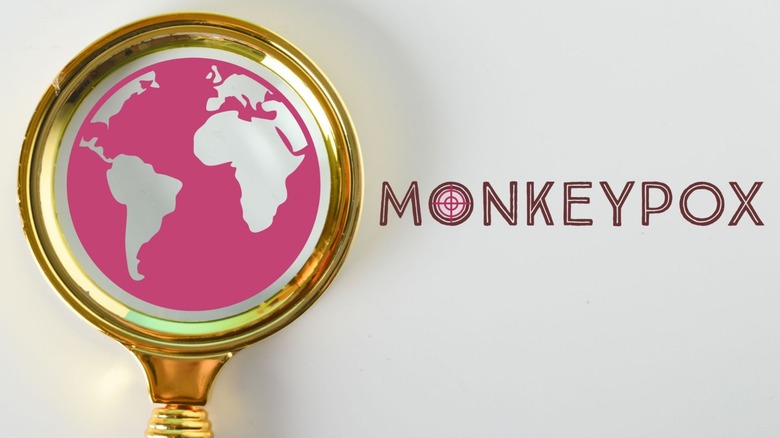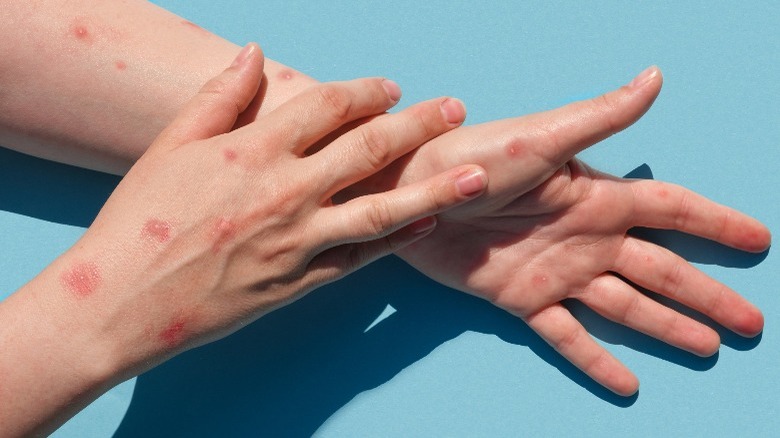Why Health Experts Say Monkeypox Worsens The Divide Between Rich And Poor Countries
As the World Health Organization (WHO) prepares to call an emergency meeting to decide whether to declare monkeypox a global emergency, critics say that the WHO should have done the same when the virus re-emerged in Nigeria back in 2017. Oyewale Tomori, a Nigerian virologist who sits on several WHO advisory groups, told the Los Angeles Times that hundreds of Nigerians were sickened during that outbreak. He said he found it curious that the WHO is calling an emergency meeting now when the monkeypox outbreak has begun to spread in white countries. Tomori's take on the situation comes in the wake of WHO Director-General Tedros Adhanom Ghebreyesus describing the latest outbreak of monkeypox — which has mostly been found in Europe — as "unusual and concerning."
There may be specific reasons why the WHO chose now to declare monkeypox a public health emergency. However, it looks like a double standard to poor countries, according to David Fidler, a senior fellow in global health at the Council on Foreign Relations (via the Los Angeles Times). Sending unsolicited monkeypox vaccines to Africa in the interest of slowing the spread to other countries could also be seen as patronizing, Fidler added.
What is monkeypox?
According to the Cleveland Clinic, monkeypox is caused by the monkeypox virus and is similar to smallpox. It is a rare disease that spreads from animals to humans and causes flu-like symptoms and a rash. Monkeypox was first discovered in 1958 when the disease spread among monkeys being used for research. Monkeypox typically spreads when humans come in contact with infected rodents; however, it is also potentially transmissible between humans via skin contact if one person is infected.
The first case of monkeypox in the United States was in 2003 when infected animals from Ghana were imported to Texas. Forty-seven people in the Midwest ultimately became infected after rodents passed the virus to prairie dogs. Anyone is susceptible to monkeypox, and while there are some common symptoms, not everyone will develop them. As a result, some people may not realize they are infected. The main signs of a monkeypox infection include fever, swollen lymph nodes, chills, and fatigue. These are often followed by the development of flat, red bumps, per the Cleveland Clinic.
There is no approved antiviral treatment at this time for monkeypox, but the disease typically goes away on its own within two-to-four weeks. To help prevent infection, the Cleveland Clinic advises that you wash your hands regularly, disinfect surfaces, and practice safe sex.


